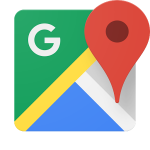Data is Best Data.
I think in a age of excitable people and easily offended internet users, the most valuable type of data that could be collected is the data of what companies are collecting what. Sort of like how the best power is the one that over powers the rest, the one ring to rule them all, the best Pokemon is ditto because it can turn into any of the other Pokemon. Instead of specializing in one specific type of data, your collection becomes all the more valuable when it can tell you about what type of data is being collected. Then you can create an app informing others about the data that’s being collected by which company.
This would incite two things. First, companies may decide to force/sue/pay you to stop sharing their data. While all of these methods are possible, i’d like to think that paying you to keep quiet on their data collection might be their best option if they want to avoid the public eye. This would give you two more bits of data: the fact that they want to hide their data, and what data they’re trying to hide. Either way, these are two more implicating pieces of information, giving you both value, and power (hypothetically).
The second is that people using your app might learn from it. They might see who is tracking what, and begin to ask why. At first they may freak out, thinking that tracking always equals scamming. However, many might see all that the collected data has done. They might see that they do not care, for the services or conveniences that they receive in exchange for their data. We as a public audience and data labor force, might reach a new understanding of how our media/marketing/entertainment economy works. During our class, JJ has been an awesome devil’s advocate, quelling our outrage at the mysterious forces that collect our data under our noses without us knowing. Not only have we learned the prevalence of data collection in almost every aspect in our daily life, but we’ve learned that it is not inherently malicious, and that we probably don’t care anyway.
So I must say that I do not condemn all companies for their data-for-services method of exchange. Honestly, it’s not like we were using the fact that we prefer one restaurant over another to entertain ourselves on a quite Tuesday night. Our preferences were our own for the longest time, and they did almost nothing for us. Now they are more valuable then they have ever been. Currently, my Spotify app is getting the most data from me, seeing as i’ve been using it every morning while I get ready for school. I don’t mind hearing adds if it means I don’t have to pay the $5 or $6 to use the same service without ads. I don’t mind letting Spotify know that I don’t wanna hear a particular song, one that i’ve already put in my song list, that early int he morning if that means i’ll get a better mix of the music I already enjoy.
 Next Post
Next Post
I don’t know if I like your data on data app, but I really liked the creativity. You were much more creative than I was. I don’t know if I would like to let users know what data is being tracked. Most people want their privacy. I love google maps, but if a message came up that said “By the way, we’re going to track your every footstep. All the time.” Instead of hiding that info in the terms and conditions, I don’t think the app would be anywhere near as effective as it is today. The big data revolution has been fairly dependent on users not knowing that they’re data has been taken. There are risks and perhaps ethical violations with data collection, but I think the resulting innovation driven by big data is worth the risk.
I think it is really important what you said about people possibly learning something about whatever app they’re using and if they look at the kinds of thing it tracks or information it wants access to. I personally have begun to feel a lot better about the information that is gleaned from my personal Internet/app usage having learned that big data is meant to be used for a bigger, future purpose. There is something highly idealistic about framing in such a way that makes it seem like my data is being collected (with many others’ data) for possibly a greater cause or endeavor. Probably not cause, but whatever. It would feel less like a commodification if we, the users, knew more about why companies are so eager for our data in the first place–even if it is ambiguous right now.
That a really interesting idea, a data collection app that can collect the data of data collectors. The biggest trick I can see needing to be resolved is how you’d collect data off of other companies. While we give away our data typically by signing user agreements, that might not have been the idea you had in mind since the possible lawsuit was raised. Of course if that was the idea you had in mind, would that mean ordinary citizens should also be allowed to sue companies for collecting their data?